Pregnant Women, Pregnant People and Parents
Do I need to worry about my newborn getting RSV?
“Our son had zero risk factors, was born completely healthy and at term (38.5 weeks, 7.5lbs). The fact he got so sick and so fast is a mystery. That’s what RSV can do in infants, even those born completely healthy.”
– A mother sharing her experience when her one-month-old son contracted RSV disease
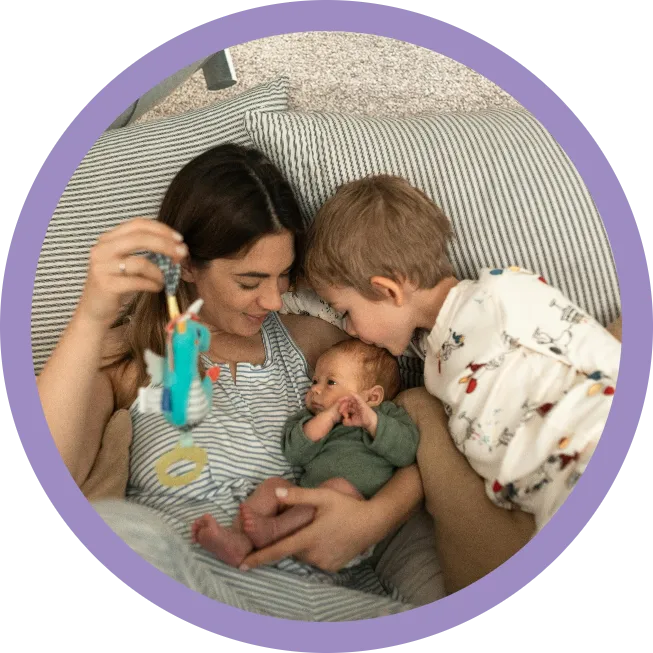
THE HIDDEN RISK FOR NEWBORNS FROM CLOSE FAMILY CONTACTS
RSV is transmitted through the droplets produced when an infected person coughs or sneezes.16
RSV spreads through contact with these respiratory droplets—either by being close to someone who is sick and coughs or sneezes or by touching a surface that has been touched by an infected person.16

THE HIDDEN RISK FOR NEWBORNS FROM CLOSE FAMILY CONTACTS
RSV is transmitted through the droplets produced when an infected person coughs or sneezes.16
RSV spreads through contact with these respiratory droplets—either by being close to someone who is sick and coughs or sneezes or by touching a surface that has been touched by an infected person.16
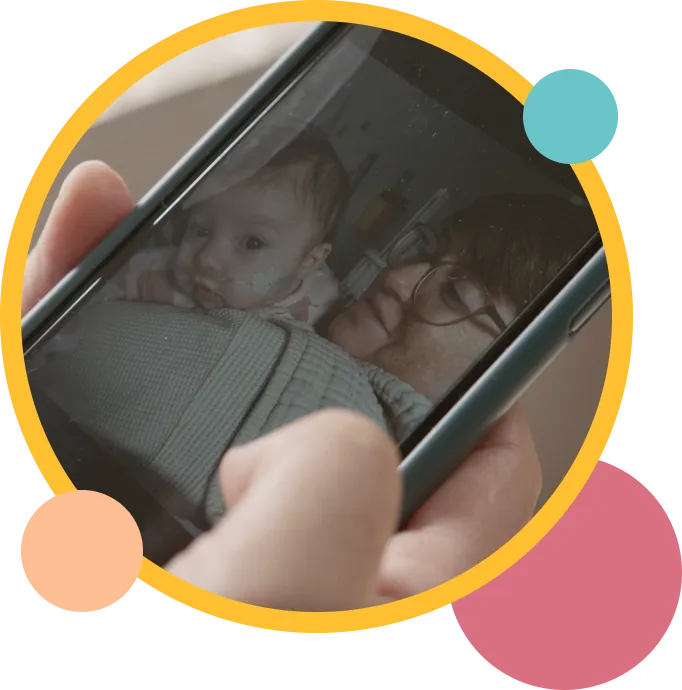
RSV AND ITS DEVASTATING EFFECTS ON INFANTS: WHAT PARENTS NEED TO KNOW
RSV is the leading cause of bronchiolitis (inflammation of the small airways of the lungs) and pneumonia (a lung infection) in infants.17
Parents who have experienced an infant with RSV recount the trauma of seeing their small child appear limp and struggling to take a breath.18
One mother recounts crumpling to the floor when a team of doctors told her that her son’s health was deteriorating and he might need to be intubated.18

RSV AND ITS DEVASTATING EFFECTS ON INFANTS: WHAT PARENTS NEED TO KNOW
RSV is the leading cause of bronchiolitis (inflammation of the small airways of the lungs) and pneumonia (a lung infection) in infants.17
Parents who have experienced an infant with RSV recount the trauma of seeing their small child appear limp and struggling to take a breath.18
One mother recounts crumpling to the floor when a team of doctors told her that her son’s health was deteriorating and he might need to be intubated.18
RSV AND ITS DEVASTATING EFFECTS ON INFANTS: WHAT PARENTS NEED TO KNOW
Infants younger than six months of age are one of the groups most likely to experience severe RSV infection, and severe RSV infection in infants can result in hospitalization or intensive care unit (ICU) admission.17
RSV is the leading cause of bronchiolitis (inflammation of the small airways of the lungs) and pneumonia (a lung infection) in infants.17
Parents who have experienced an infant with RSV recount the trauma of seeing their small child appear limp and struggling to take a breath.18
One mother recounts crumpling to the floor when a team of doctors told her that her son’s health was deteriorating and he might need to be intubated.18

RSV and It's Devastating Effects...What Parents Need to Know
RSV and It's Devastating Effects...What Parents Need to Know
RSV and It's Devastating Effects...What Parents Need to Know
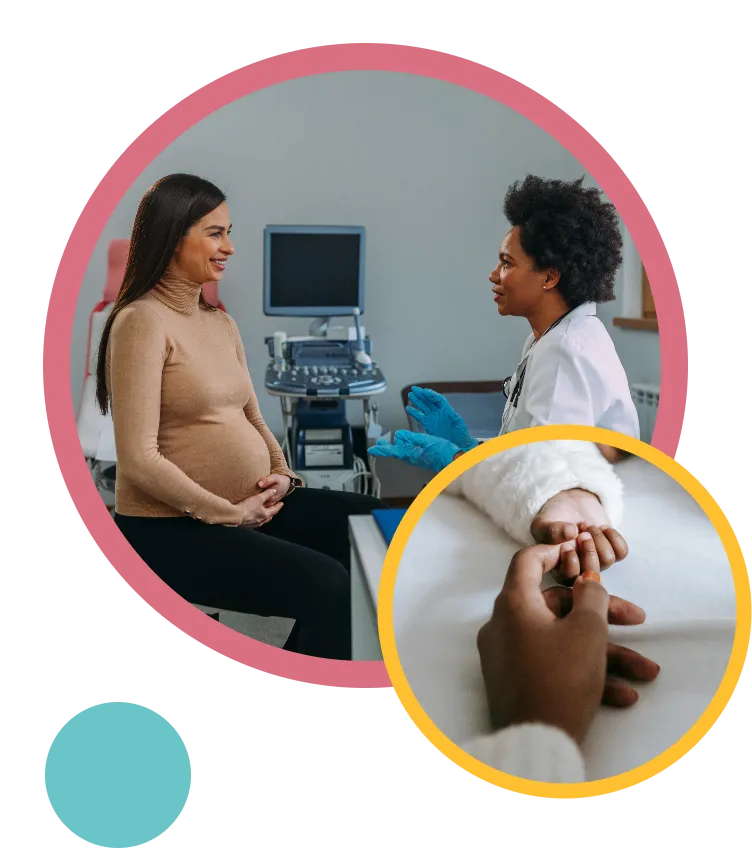

WHAT CAN I DO TO HELP PROTECT MY NEWBORN FROM RSV?
Wash your hands frequently – it is easy to come into contact with the virus on a surface then transfer it on your hands.
Avoid exposure – limit your baby’s contact with people who have fevers or colds.
Keep things clean – counters, doorknobs, and toys are all easy places to pick up the virus if someone in your home is sick.
Don’t smoke – babies exposed to tobacco smoke have a higher risk of getting RSV and may have more severe symptoms.
Talk to your healthcare provider – understand the protective pharmaceutical options available to you and together, with your healthcare provider, make an informed, shared decision regarding the best option for you and your baby.
There are two new protective pharmaceutical options approved by Health Canada to protect newborns from RSV:
A maternal RSV vaccine, named AbrysvoTM (Pfizer), which can be administered to pregnant people between 32 and 36 weeks gestation.
A monoclonal antibody, named BeyfortusTM (Sanofi), which can be administered to newborns at birth if born during RSV season or children up to 24 months of age who remain vulnerable to severe RSV disease through their second RSV season.

WHAT CAN I DO TO HELP PROTECT MY NEWBORN FROM RSV?
Wash your hands frequently – it is easy to come into contact with the virus on a surface then transfer it on your hands.
Avoid exposure – limit your baby’s contact with people who have fevers or colds.
Keep things clean – counters, doorknobs, and toys are all easy places to pick up the virus if someone in your home is sick.
Don’t smoke – babies exposed to tobacco smoke have a higher risk of getting RSV and may have more severe symptoms.
Talk to your healthcare provider – understand the protective pharmaceutical options available to you and together, with your healthcare provider, make an informed, shared decision regarding the best option for you and your baby.
There are two new protective pharmaceutical options approved by Health Canada to protect newborns from RSV:
A maternal RSV vaccine, named AbrysvoTM (Pfizer), which can be administered to pregnant people between 32 and 36 weeks gestation.
- A monoclonal antibody, named BeyfortusTM (Sanofi), which can be administered to newborns at birth if born during RSV season or children up to 24 months of age who remain vulnerable to severe RSV disease through their second RSV season.
“I want all patients/pregnant individuals to know the best options to protect their infant from RSV based on availability, cost, location and their personal choices. Patient decision making is key."
– FMWC Maternal RSV Task Force Member
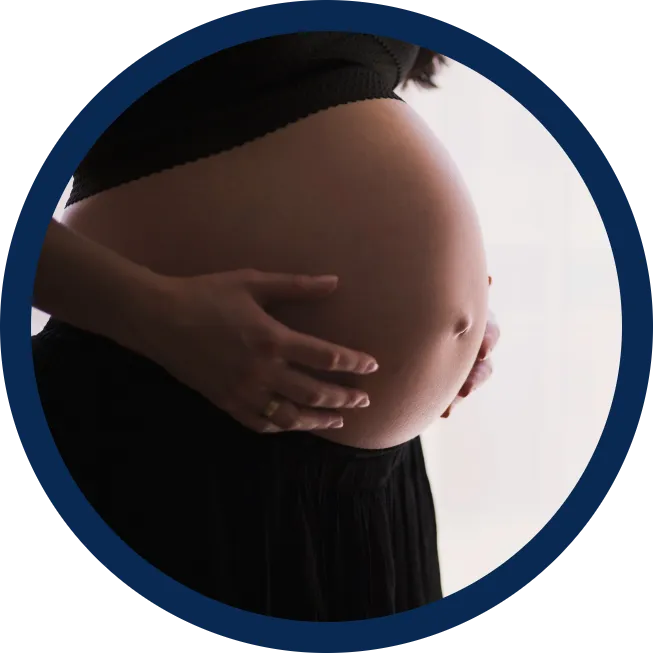
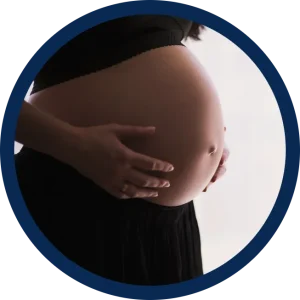
“I want all patients/pregnant individuals to know the best options to protect their infant from RSV based on availability, cost, location and their personal choices. Patient decision making is key."
– FMWC Maternal RSV Task Force Member

